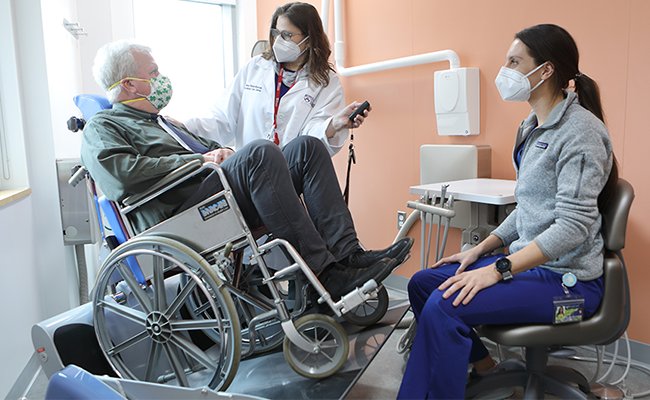For disabled folks, getting adequate health care can be a tricky business. There is an assumption that medical professionals are thoroughly trained in the needs of disabled patients. But, out in the real world, this isn’t the case. Perhaps you find this surprising. But it really shouldn’t be. After all, in health education, the emphasis is placed on treating able-bodied, non-disabled patients—which represent most of the patients they will encounter. So, during their training years, doctors and nurses spend shockingly little time interacting with disabled patients. This gap in knowledge trickles down in how these patients are handled down the road.
As a disabled woman, I can fully attest to this. There have been many instances where I had to be the one to educate doctors and nurses on my condition and how to care for me— not the other way around, as many would assume. This knowledge gap can have profound consequences. Medical care for disabled people is often delayed, passed-off— or neglected all together. Many, healthcare professionals just don’t have the knowledge or experience to provide the care needed. This directly translates into lower levels of health screenings and, thus, higher mortality rates for people with all types of disabilities.
There is another hurdle that disabled people must dodge when seeking medical care: avoiding the perils of “medical tunnel vision.”
What do I mean by that? Well, when you have a disability, that condition often becomes the convenient “explanation” for every ailment or symptom that comes your way. It’s a bucket that healthcare professionals can dump all your issues into:
- Got a pain in your hip?
Oh, that must be your multiple sclerosis.
- Having difficulty with headaches and elevated anxiety?
Oh, that’s just the developmental disability.
- Having stomach issues?
Oh, that just must be your cerebral palsy.
- Feeling tired and exhausted?
Oh, that’s just what happens to people with diabetes.
See how easy it is to use a patient’s disability as a catch-all? It’s terrifyingly and dangerously easy… and every day disabled people die because of it.
Therefore, this “medical tunnel vision” makes it easy for healthcare professionals to neglect screenings for potential secondary (and even tertiary) conditions— many of which are life-threatening. For example, those with intellectual and developmental disabilities have much higher rates of cardiovascular issues than nondisabled people. But they are screened for these conditions far less. There are many other disabilities that have elevated risks for various secondary conditions, but because of the lack of education and training in the medical field, these risks aren’t discussed. Therefore, it is often up to the disabled person, or their caregivers, to bring attention to these matters and demand proper care.
This is a lot to ask of disabled people, and their families, especially considering all the other barriers they must face living in an able-bodied world. It’s not fair to place this onto them, as well. The medical establishment must step up to the plate, but sadly, we could be waiting a very long time for that to happen… with many disabled people dying in the interim.
So, what can we do about this? Well, it starts at the local level, with patients pressuring their general healthcare practitioners to demand care and screenings. Not sure where to begin? Have a conversation with your health care provider. (Here’s a basic checklist to use as a starting point: https://anthesis.us/wp-content/uploads/Medical-Checklist.png
In addition, most regional centers, disability-specific foundations and other advocacy groups have health-related information publicly available— often on their websites. These resources can include tips, screening protocols and other research to help folks navigate a medical system that is often ignorant of their unique needs.
Lastly, don’t be afraid to make a little noise. Ruffle some feathers. Ruffle a LOT of feathers. After all, in the words of the late, great disability advocate, Stella Young, “No amount of smiling at a flight of stairs has ever made it turn into a ramp.“

